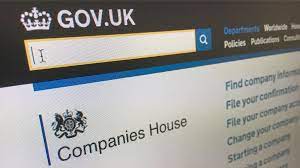Reforming Companies House – what will it mean?
Proposed changes to the way businesses are registered at Companies House aim to tackle, at long last, numerous loopholes that make the current system vulnerable to abuse.
The government's long awaited white paper on corporate transparency has been published after 18 months of consultation as part of its "crackdown on the laundering of overseas dirty money".
Lord Callanan, in the paper's foreword, outlines the extent of the problem and why substantial changes to the registration and filing processes at Companies House are needed.
"Recent years have seen this framework manipulated, particularly in the use of anonymous or fraudulent 'shell' companies and partnerships," he states. "These provide criminals with a veneer of legitimacy to help commit a range of crimes, from grand corruption and money laundering to fraud and identity theft."
What's the extent of the current problem with Companies House?
One of the key issues is the poor verification of data provided to Companies House.
The corporate register has been accused of failing to undertake even basic checks - all that is needed to set up a company online in the UK is a £12 to £30 fee and a 15-minute registration process without even a passport needed to prove you are who you say you are.
Problems range from the setting up of 'shell' companies, which exist only on paper and have no active business operations, to 'phoenix' companies which rise from the ashes of another company which has collapsed due to insolvency.
Here at Wards Solicitors, we have been contacted by people who have even had companies registered at their homes, without their knowledge and approval, by unconnected third parties.
What are the proposed reforms to Companies House?
The government's aim is to transform Companies House from a 'passive administrator' to more 'active gatekeeper'.
The key changes include:
- Identity checks - most people incorporating or filing with Companies House will have to verify their identities with official documents and biometric checks. Anyone failing to do so will have this noted on the public register available to anyone considering doing business with them;
- New powers to the Companies House registrar meaning suspicious appointments or filings can be queried, rejected or additional evidence asked for;
- More extensive data sharing via legal gateways with law enforcement, other government bodies and the private sector;
- The requirement for all small companies to file a profit and loss account with all accounts in a specific digital format.
Get in touch
If you need further advice on these reforms, including what to do if you're concerned a company has been set up fraudulently using your details, please contact James Taylor, a specialist lawyer dealing with Financial Services Disputes.
Email James: James.Taylor@wards.uk.com
Phone James: 01454 204880


